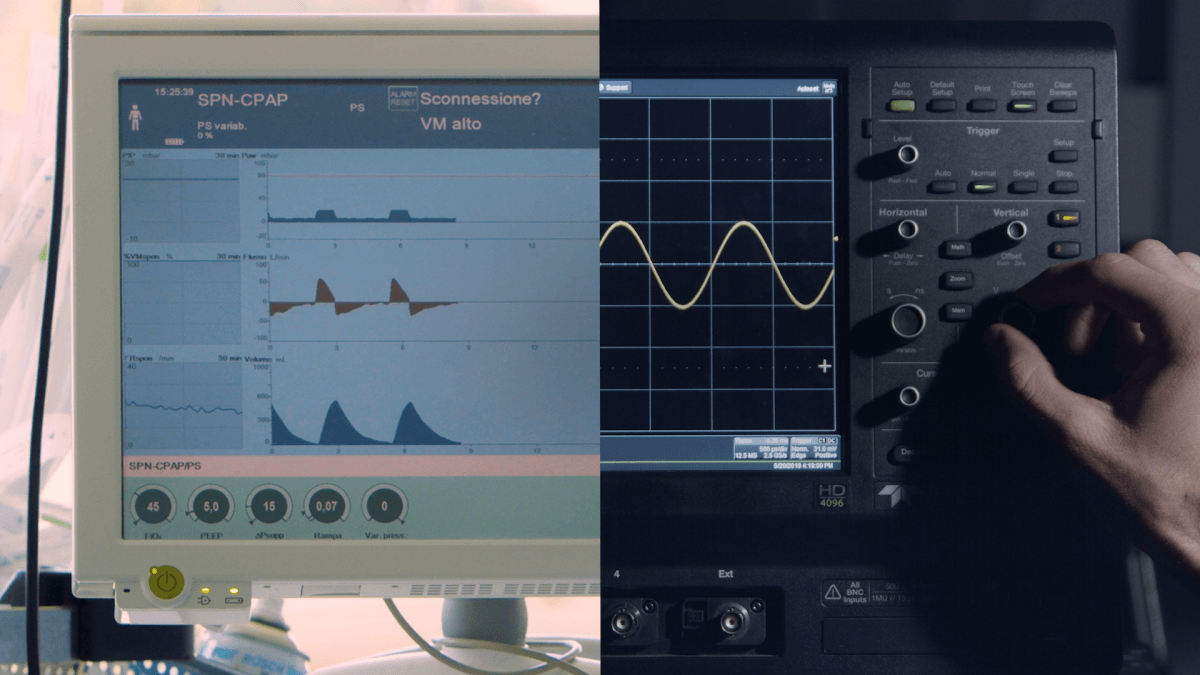Where science and biomedical engineering education meet in Milan, Humanitas University’s MEDTEC School is a six-year medical degree taught in English, supplying students with theoretical interdisciplinary modules, hands-on experience and simulation activities.
The first university in Italy to offer this sort of programme, a collaboration with Politecnico di Milano, Humanitas University is a renowned healthcare institution that offers industry-standard medical degrees for undergraduates looking to gain in-depth knowledge of advanced medical technologies while studying in one of Europe’s most exciting cities.
With a new campus located in a lush green area just beside the hospital and a new Simulation Centre that spans 2,000 square metres with future-facing facilities, medical students have access to high-tech classrooms, a digital library and modern residences.
Start in Milan with MEDTEC School
Dealing with digital disruption directly, Humanitas is training students for technological developments in the global medical sector and equipping them with the knowledge needed to work alongside Artificial Intelligence (AI), surgical robots and new nanotechnologies effectively.
For six-years, MEDTEC School students will build their knowledge of biomedical engineering by divulging in basic science disciplines such as chemistry, physics, statistics, computer science and acquiring basic biomedical engineering methodologies and technologies into medical to foster integration between the two disciplines.
An established degree in both medicine and biomedical engineering, this is a balance that evokes essential scientific expertise for future roles and enables graduates to work in numerous medical fields such as biomedical device design, biomedical technologies or in pharmaceutical industries.
Taking an innovative approach to doctor-patient interaction, the MEDTEC School also teaches learners how to maximise the potential of technologies and intelligent systems for the optimisation of machine-patient interaction and for the customisation of therapies and continuity of care.
Along with these attributes, you’ll also be able to optimise therapeutic results through data analysis and machine learning techniques, as well as the use of new materials and advanced therapeutic devices such as surgical robots, endoprostheses, biostamps and 3D prints.

Source: Humanitas University
Education that promotes interactive methodologies
Standing out from the crowd of educational and medical institutions, MEDTEC School merges research-based learning, problem-based learning, critical thinking tasks, case methods and skill-based portfolios to guarantee a solid integration of interactive methodologies.
Learning by doing, MEDTEC School students leave the campus feeling confident and capable in their medical capabilities and their biomedical engineering expertise.
To ensure a shared understanding, lessons always aim to encourage student engagement and interaction, and there’s a strong focus on group work through data collection, data management and follow-up discussions with teaching staff.
A structure built for future success
Optimising the organisation and assessment of your MEDTEC School experience, during Years 1-3, you’ll have plenty of opportunities to refine your practical experience, embark on internships, enter specialised laboratories and acquire sought-after soft skills – key to the development of doctor-patient relationships.
Your first semester of the course will be held at Politecnico di Milano and your second semester will take place at Humanitas University to facilitate student integration between the fields of medicine and biomedical engineering.

Source: Humanitas University
During Years 4-6, both semesters will be held at Humanitas University and the courses are mainly dedicated to clinical training, the use of the Simulation Centre and other Humanitas hospitals.
Overall, the degree programme will include both single-subject and integrated course modules where teaching staff from Humanitas University and Politecnico di Milano will be co-present in the classroom, ensuring the full integration of engineering skills in clinical training.
On completing your studies in Medicine with a total of 360 ECTS, if you have also acquired the 30 additional ECTS during the six-year degree programme, you’ll be able to apply to Politecnico di Milano for the issuance of the three-year degree award in Biomedical Engineering.
And in order to complete your degree, you will be required to write a degree thesis, supervised by professors from the two universities.
Ultimately, this innovative and integrated six-year training programme will allow you to obtain additional ECTS and be awarded a Bachelor’s degree in Biomedical Engineering from Politecnico di Milano, in addition to an MD in Medicine.
Currently, 60 places are available annually for the MEDTEC School Programme, so if you want to start your 2020 application, click here and harness your potential with Humanitas.
Follow Humanitas University on Facebook, YouTube, Instagram and LinkedIn
Liked this? Then you’ll love…
Humanitas University: Inspiring the next generation of medical doctors
Humanitas University: Inspiring doctors who wish to explore biomedical engineering










